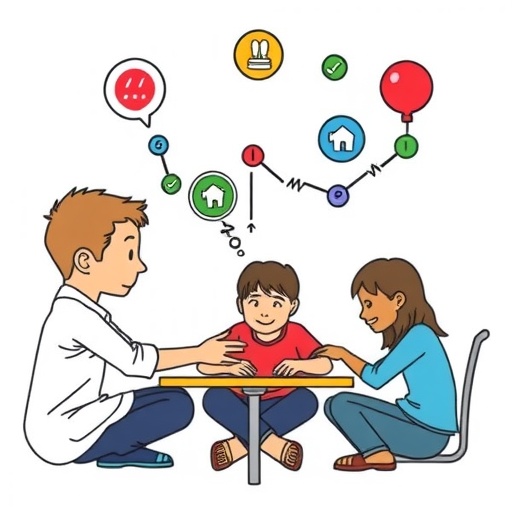In a groundbreaking study published in BMC Medical Education, researchers have explored innovative pedagogical approaches to enhance pharmacology education. The paper, titled “Enhancing Pharmacology Education Through Role-Play: Impact on Student Attitudes,” brings to light the significant effects that experiential learning techniques, such as role-playing, can have on medical students’ understanding and attitudes towards pharmacology. This research is timely, as it appears amid ongoing discussions about the need to improve traditional medical curricula, which often fail to engage students effectively.
The study was conducted by a team of pioneering educators who recognized the challenge that pharmacology presents to medical students. Historically, students have found this subject daunting — often characterized by an overload of information on drug mechanisms, interactions, and side effects. To tackle this issue, the researchers implemented a novel role-playing exercise tailored specifically for pharmacology students. By situating students in realistic, simulated clinical scenarios, the team intended not only to improve comprehension but also to foster a more empathetic understanding of patient care practices.
Participants in the study consisted of a diverse group of medical students who were divided into two cohorts. One group underwent traditional pharmacology instruction, while the other group engaged in the role-play intervention. The researchers meticulously measured both groups’ attitudes, levels of engagement, and overall comprehension through qualitative and quantitative assessments pre- and post-intervention. This dual-pronged approach provided a comprehensive insight into the efficacy of role-playing as an educational tool.
Preliminary results indicated a marked distinction between the two cohorts. Students who participated in the role-playing exercises exhibited not only heightened knowledge levels but also significantly improved attitudes towards pharmacology and its applications in clinical settings. These findings suggest that immersive, interactive learning experiences may be more effective than conventional lectures in creating profound understanding among students.
Moreover, role-playing in the context of pharmacology education allowed students to grasp complex concepts in a practical framework. Rather than learning solely through textbooks, the students were encouraged to embody different healthcare roles—such as a physician, pharmacist, or patient—in various scenarios involving medication management. This method highlighted the interconnectedness of various healthcare roles and emphasized the collaborative nature of medical practice.
The implications of this research extend beyond mere educational outcomes. With the continuous emphasis on patient-centered care in modern healthcare systems, it is crucial that future healthcare professionals understand the importance of comprehensive medication management. Role-playing, therefore, not only equips students with pharmacological knowledge but also cultivates skills essential for effective communication and team collaboration within multidisciplinary healthcare environments.
Equally important is the fact that this study opens up discussions regarding the transformation of medical education. As educators begin to recognize the limitations of traditional instructional methods, this research champions a shift toward more dynamic and engaging educational practices. The integration of role-playing and other active learning strategies in pharmacology could serve as a catalyst for broader pedagogical reform across medical training programs.
Furthermore, the findings serve as a beacon for medical schools looking to innovate their curricula. By adopting similar approaches, institutions may improve students’ educational experiences and results. The encouraging outcomes of this study could motivate other medical faculties to consider alternative teaching methodologies that align with students’ diverse learning preferences.
In conclusion, the work conducted by Tekeş et al. not only sheds light on the potential of role-playing as an educational strategy but also underscores the necessity of transformation within medical education. The study’s findings advocate for educational frameworks that prioritize experiential learning, thus preparing future healthcare professionals in a manner that resonates with the realities of patient care. As the medical field continues to evolve, so too must the methods employed to educate its workforce.
In closing, as the medical education landscape shifts in response to both student needs and healthcare demands, the importance of adopting innovative teaching techniques cannot be overstated. This research serves as a powerful reminder of the role educators play in shaping the future of healthcare—one that is not just knowledgeable but also compassionate and integrated.
Subject of Research: Enhancements in pharmacology education through role-play strategies.
Article Title: Enhancing pharmacology education through role-play: impact on student attitudes.
Article References:
Tekeş, E., Güngör, B., Sılan, C. et al. Enhancing pharmacology education through role-play: impact on student attitudes.
BMC Med Educ 25, 1306 (2025). https://doi.org/10.1186/s12909-025-07900-6
Image Credits: AI Generated
DOI: 10.1186/s12909-025-07900-6
Keywords: Pharmacology education, role-play, medical students, experiential learning, pedagogical innovation.




